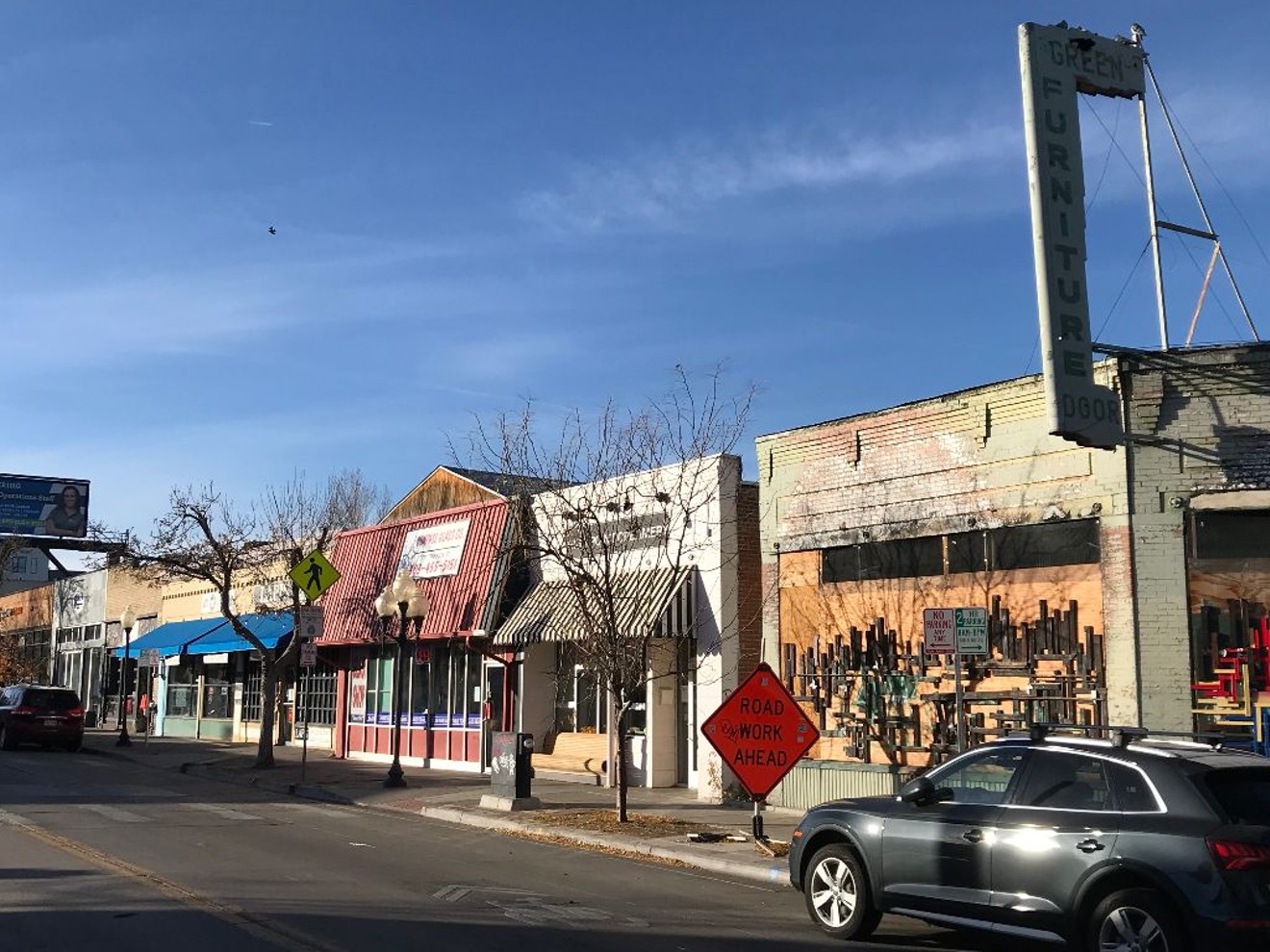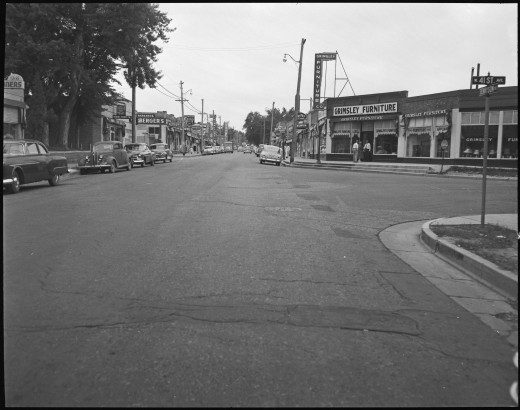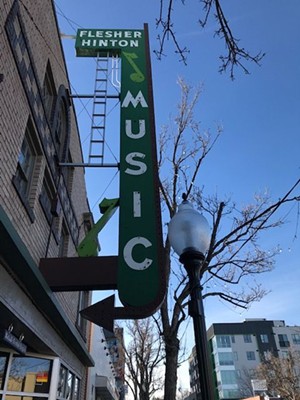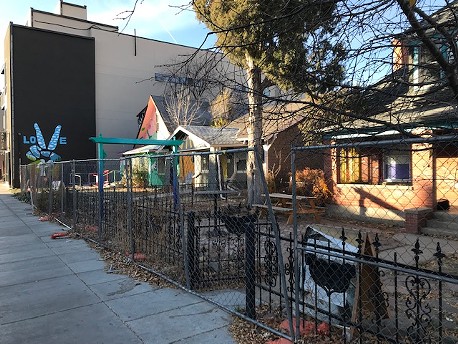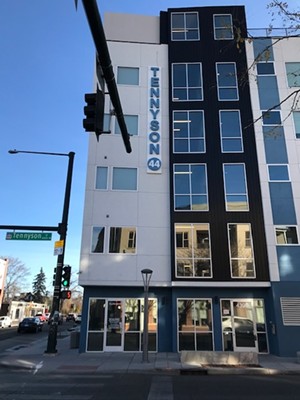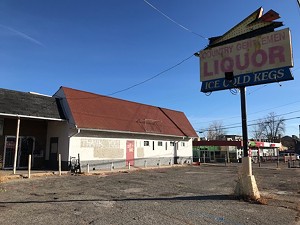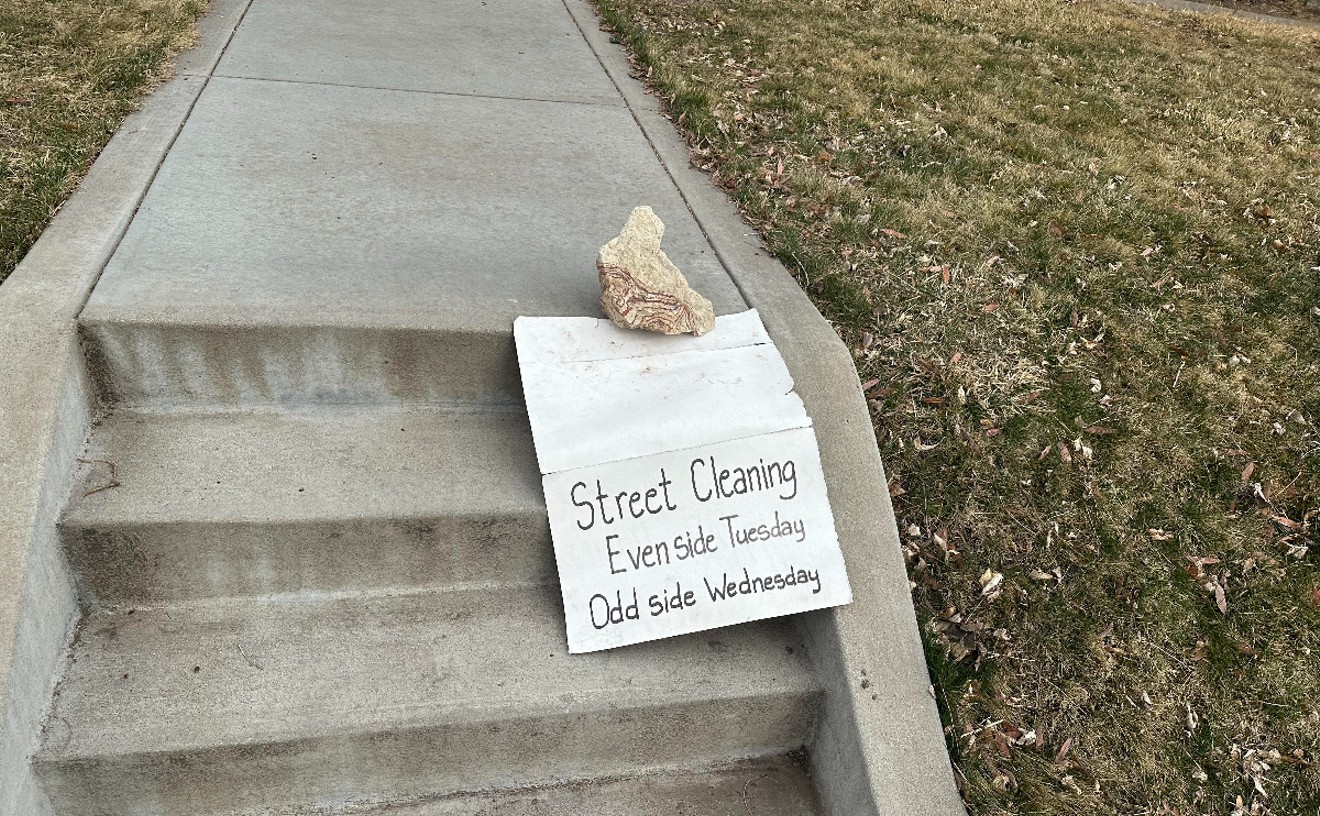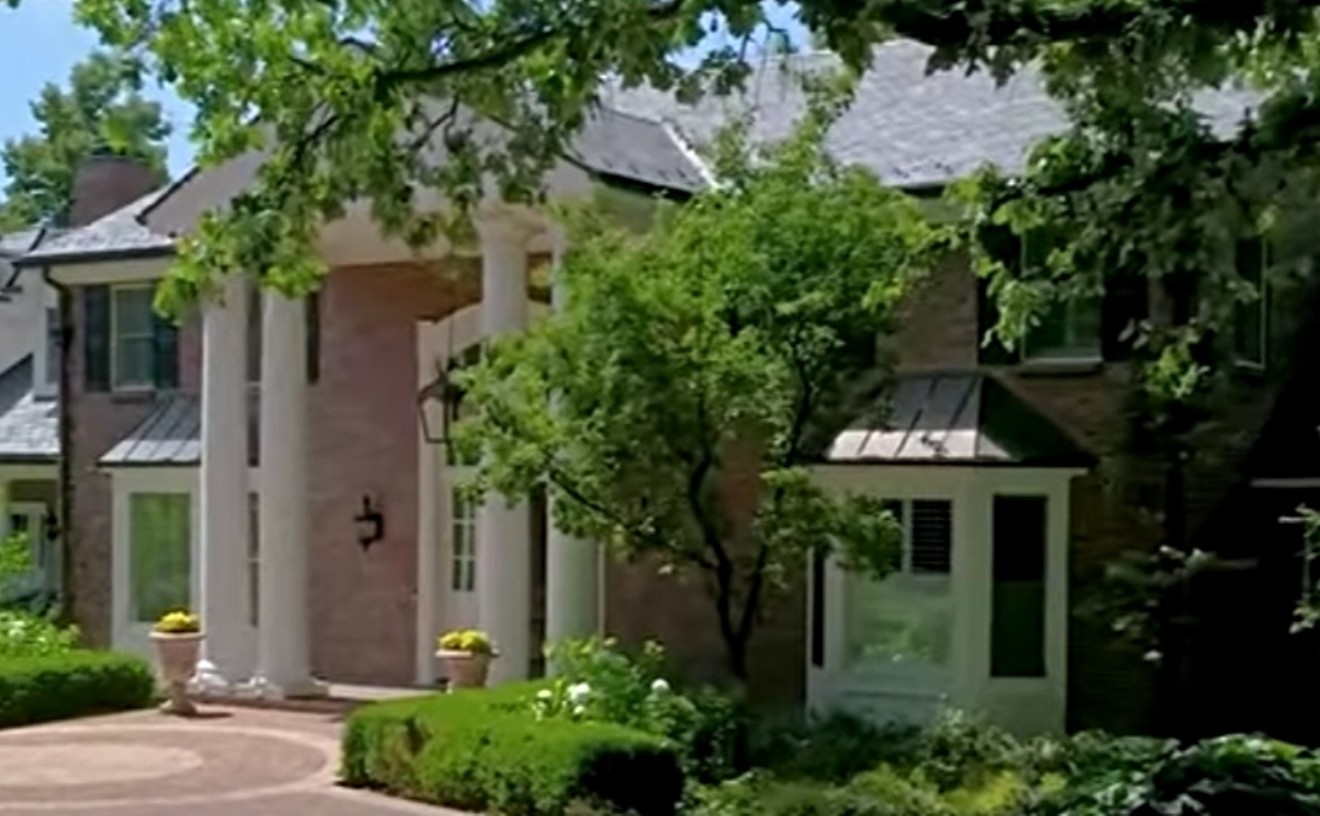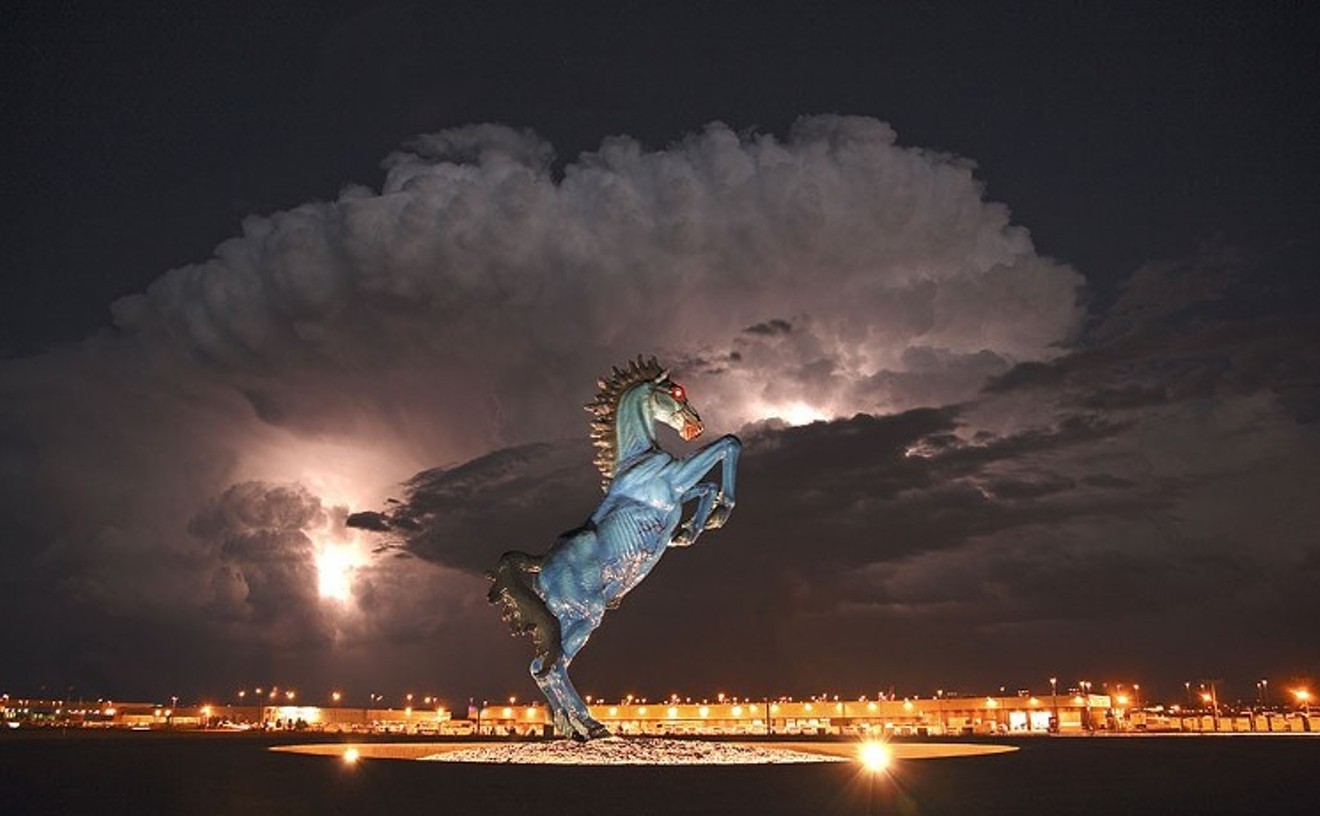Back then, those neighborhoods (Highland, Sunnyside, Berkeley) and their historic sub-sections (Potter-Highlands, Grandview, the West 46th Parkway) were in flux, and Tennyson Street was no different. Full of the old, with the new just creeping in. A neighbor of mine talked about the Tennyson corridor as the closest thing we had to the burgeoning 32nd and Lowell area with its Common Grounds coffee shop, Bang! restaurant, and original Heidi’s Brooklyn Deli, all three retail pioneers that made that street what it was, and are now gone. This was back when the Chipotle on the corner was still a furniture store. But it was lively, a place to gather. It’s what those of us who lived close enough to I-70 to hear the rumble of traffic wanted Tennyson to be.
As always, the old saw “Be careful what you wish for” applies here.
When we talk about Tennyson Street, we’re usually talking about a six-block stretch of a much longer road, from 38th Avenue to 44th. It’s the old retail strip for the surrounding Berkeley neighborhood, once a stop on the much-lamented streetcar line that used to connect the divisions of Denver, and almost certainly built up by its proximity to its two anchors at either end: the original Elitch Gardens on the south, and the Oriental Theater on the north.
Elitch’s was still technically there back in 1998, though it was abandoned and empty, having closed a few years before. But most of the park was still standing, too little of it having been moved down to the new digs in the South Platte river bottom where the long-loved Denver theme park would begin its corporate and largely charmless era of existence. The silent skeleton of a coaster lurched next to the cyclone fencing that surrounded it.

Left to right: what was Elitch Lanes, what was the vacuum repair place, and what was Ward-Carter Dance Studio.
Teague Bohlen
But across 38th, Tennyson was still kicking. I remember parking there — plenty of spots back then, and no time limit to watch — up by Elitch Lanes. I’ve always liked bowling alleys. They’re unpretentious by their very nature, and a neighborhood that can support a bowling alley is one in which few are putting on airs. No one can pull off snotty while wearing communal shoes.
I think this walk down Tennyson was the moment I really fell in love with it. Country Gentlemen Liquor on the corner didn’t care who you were or what you drank, as long as you had cash. The vacuum repair place with the super-'60s slanted corner window display was lined in old Hoovers. Flesher-Hinton Music still had shiny horns on display. A little strip-mall diner — I wish I remembered the name — offered bacon and eggs and toast and jam for under three bucks. The Ward-Carter Dance studio was still hoofing. Green Door Antiques was still stuffed to the rafters with marvelous junk and had not yet seen its end in a 2016 fire. There was a little bookstore that would later become BookBar. At the north end of the street, across from the Oriental, the gravel lot with the little cinderblock and painted-clapboard shack — the original La Casita — made some of the best tamales in town. And there was more, I’m certain, that I’m forgetting.
What I’m not at all forgetting is the shop that was the reason I was on Tennyson in the first place: my friend John’s comic book store, Highlander Comics and Games. When I met John, he had a tiny place near the aforementioned diner on the west side of Tennyson, midway down the block. It was skinny, that first store, but long, with a bathroom in the back that made you not want to sit on the toilet because the floor sank under you when you did. But it was also lovely, in that old-world sense, with big retail windows looking out onto the street, people still walking and shopping like Amazon wasn’t a thing. I ended up working there for store credit on Fridays to give John a day off and feed my nerd habit. I’d talk to the ladies from the diner a couple of doors down when they were out front on a smoke break. I shoveled snow in the winter, wished for A/C in the summer.
A year or two later, the diner had closed and John had moved across the street. It was a larger store by far, almost too much space, next to a glass company and a custom furniture store. And there the store stayed, John hoping that Tennyson would keep developing, attract more walk-in traffic, get to that point where it made sense for a comic book shop to take up that much real estate. Around him and Highlander, Tennyson did change, but not fast enough, maybe in the wrong ways. John would move again, this time out of the Northside and to Colfax near Logan. We did our part to keep Colfax weird for a few more years until John moved on to other stuff, and I had to go back to paying for my comics out of pocket again.
Meanwhile, Tennyson Street just kept growing and changing. La Casita and its tamales moved to a big new place on Tejon, and the gravel lot where it sat became a monolithic apartment complex, one of the first on the street to replace what had been there for decades before. Bungalows were torn down, new buildings thrown up. Diners weren’t gone, but the old-school stuff closed down and became more trendy, the sort of place that doesn’t bother putting prices on the menus, because if you have to ask, you probably shouldn’t be eating there. There is some good: BookBar has proven itself time and again to be a positive force, Javier & C’s diner is still keeping it real on the north end, with Tacos Jalisco just around the corner. But the only constant on Tennyson in the past decade has been temporary fencing, with new construction changing — and too often replacing — the old. The year 2015 seems to have been the tipping point, or at least the moment when everyone gave up the ghost. Elitch Lanes closed, and Flesher-Hinton moved to Wheat Ridge. Development, already in high gear, got turned up to eleven.
Denver City Councilwoman Amanda Sandoval has seen it all, and has hopes that the special zoning overlay passed late last year mandating ground-floor commercial space in any new projects along the corridor will help save what character is left.
"When that overlay passed," Sandoval says, "eight projects had to go back through the design review process. We need to work to maintain that neighborhood feel and character. I consistently hear from constituents that they moved to that area for exactly that."
And it's not just politics for Sandoval — it's personal. Her father started that little tamale shop on the corner of Tennyson and 44th back in 1975, and Sandoval recalls spending many happy days making tamales with her grandma or her dad, sometimes cleaning the lot. "It was across the street from one of our only old theaters in northwest Denver, the Oriental Theater," she says. "It was a missed opportunity not to have something across the street that complements it. Seeing how that building [the one that replaced her father's restaurant] really didn't take cues from the environment — it really spurred the need for modification to the Denver Zoning Code."
But is it too late for Tennyson? That depends on how you define late. Too late to maintain its anchors and its old personality, yes. When the bowling alley turns into a Natural Grocers, you know some sort of corner has been turned. Even the Country Gentlemen finally shut its doors sometime during the pandemic,and someone painted a big THANK YOU on the exterior wall of the Tennyson Tap next door — and meaning it, I'm sure. It was a good run for old Tennyson. It made a big impact on a lot of lives for a number of decades. It is the same these days? Not in the slightest. Is it past salvaging? Not in the slightest.
Nicole Sullivan, BookBar owner and co-founder of the Tennyson-Berkeley Business Association, says that the "canyon of slot homes" on Tennyson represent an opportunity. "What we can do is learn from our past mistakes, and learn from the impact that they've had. We have to be very mindful of how you create a vibrant commercial corridor, by having retail and restaurants on the ground level of any new builds, and by preserving the existing structures as much as you can. People need to feel compelled to walk the whole street. It's almost a full mile. We need to make sure there are all kinds of reasons to start at one end and keep walking and shopping and enjoying it all."
Sure, Tennyson Street today can’t rely on an old-world awesome to bring in shoppers. It can’t feed you breakfast for under three dollars. It can’t teach you to dance, invite you to knock down some pins, show you the difference in sound between a French horn and a cornet. Tennyson has in some ways been wiped clean. But even in that, there's still promise. Even in that, there still stand the ghosts of what was in what is and what will be. Tennyson is doing what it has to. Tennyson is beginning again.
Updated on January 18, to correct the wall on which the THANK YOU appeared.

